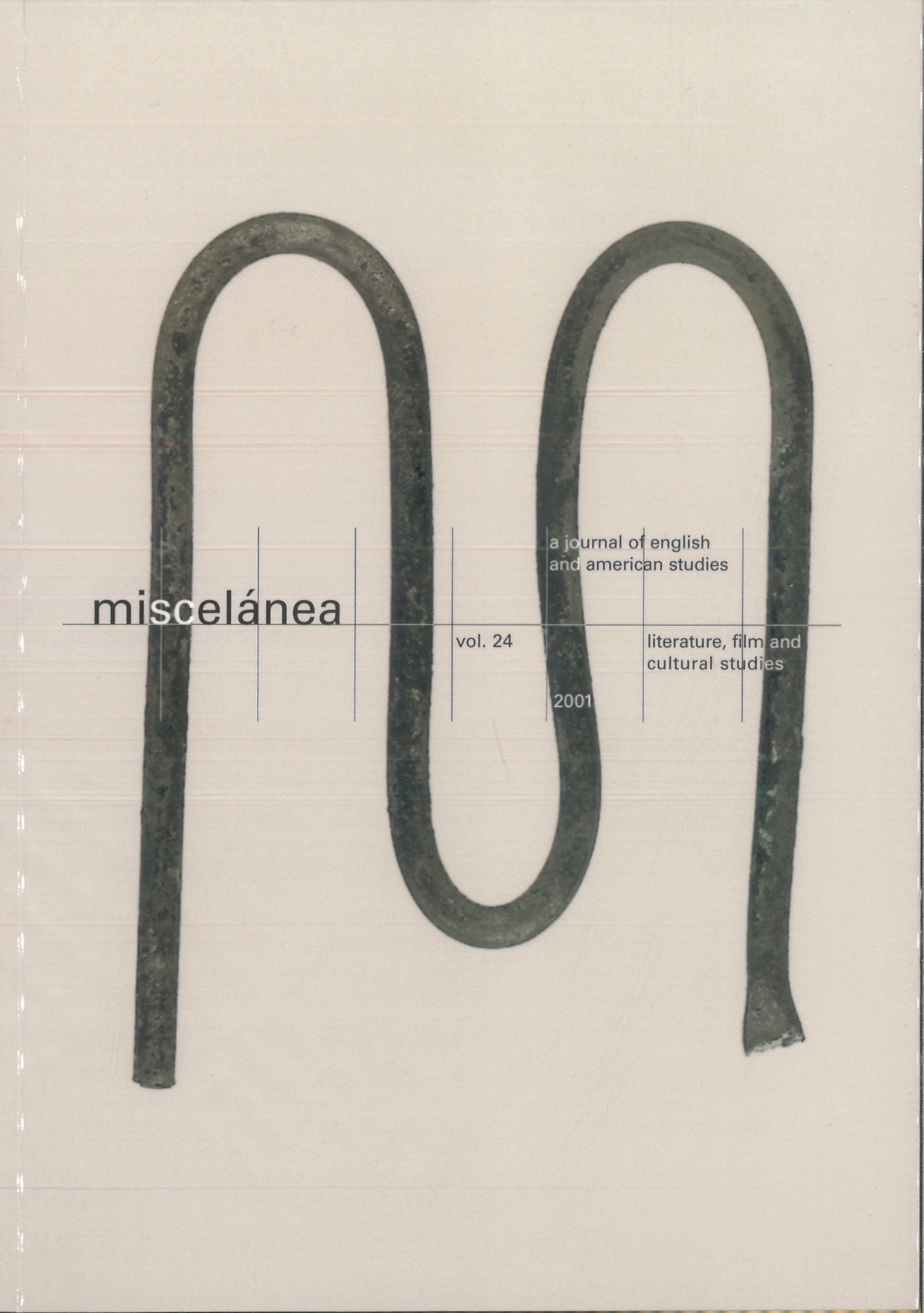Into the Heart of the Labyrinth. The Pursuit of Mannerist Traditions in John Banville’s Athena
DOI:
https://doi.org/10.26754/ojs_misc/mj.200110302Palabras clave:
Manerismo, Postmodernismo, Metaficción(al), Poetológico, Proceso de creación de la ficciónResumen
Athena (1995), de John Banville, a la que se suele referir como la última parte de la trilogía que comprende El libro de las pruebas (1989) y Fantasmas (1993), muestra la mayoría de las características que se atribuyen con frecuencia a la ficción posmoderna. Este estudio sigue una línea de la crítica literaria que ha identificado sorprendentes analogías tipológicas entre la ficción posmoderna contemporánea y las tradiciones metahistóricas manieristas en literatura, y sostiene que Banville recurre consciente y deliberadamente a técnicas manieristas/posmodernas. Más concretamente, intento demostrar que Banville funcionaliza temas y recursos estilísticos manieristas como reacción a la petrificación y el deterioro del discurso posmoderno, una "forma de operar" (Eco) que, de hecho, pone de relieve la conciencia del escritor de que el posmodernismo ha "seguido su curso" (Banville). El artículo concluye con una lectura poética y metaficcional del título Athena y de la función o funciones de la letra A. para ilustrar cómo el proceso de creación de ficción per se es la preocupación central de la novela.
Descargas
Citas
AUSTER, Paul. 1985. The New York Trilogy. Part 1: The City of Glass. London/Boston: Faber and Faber.
—. 1992. Leviathan. London/Boston: Faber and Faber. ‘
BANVILLE, John. 1995. Athena. London: Minerva.
—. 1993. Ghosts. London: Minerva.
—. 1989. The Book of Evidence. London: Minerva.
—. 1981. “A Talk”. Irish University Review. John Banville Special Issue 11 (1) (Spring 1981): 13-17.
BARTHES, Roland. (1971) 1992. “From Work to Text”. In Rice, Philip and Patricia Waugh. (eds.). Modern Literary Theory: A Reader. London: Edward Arnold: 166-172.
BURGSTALLER, Susanne. 1992. “This Lawless House —John Banville’s Post-Modernist Treatment of the Big-House Motif in Birchwood and The Newton Letter”. In Rauchbauer, Otto. (ed.). Ancestral Voices: The Big House in Anglo-lrish Literature. A Collection of Interpretations. Hildesheim: Georg Olms Verlag: 239-256.
DERRIDA, Jacques. 1986. Glas. Trans. J. P. Leavey and R. Rand: University of Nebraska Press.
EAGLETON, Terry. (1983) 1996. Literary Theory: An Introduction. Cambridge, Mass.: Blackwell.
ECO, Umberto. 1986. “Postilie a Il nome della rosa”. In nome della rosa. Milano: Bompiani: 505-533.
FELTEN, Hans. 1990. “Burger im fremden Land”, Sonderdruck aus Italienisch 23 (Mai 1992): 1-12.
FRIEDRICH, Hugo. 1964. Epochen der italienischen Lyrik, Frankfurt a.M.: Klostermann.
GOYTISOLO, Juan. 1977. “El mundo erótico de Maria de Zayas”. In Disidencias. Barcelona: Seix Barral: 63-115.
GRACIAN, Baltasar. (1648) 1987. Agudeza y Arte de Ingenio. Ed. de Correa Calderén. Madrid: Castilia.
HAUSER, Arnold. 1973. Der Ursprung der modernen Kunst und Literatur. Die Entwicklung des Manierismus seit der Krise der Renaissance. Miinchen: Beck.
HOCKE, Gustav René. 1957. Die Welt als Labyrinth. Manier und Manie in der europdischen Kunst. Reinbek bei Hamburg: Rowohlit.
—. 1959. Manierismus in der Literatur. Sprach-Alchimie und esoterische Kombinationskunst. Reinbek bei Hamburg: Rowohlt.
IMHOF, Riidiger. 1981a. “An Interview with John Banville: My Readers That Small Band Deserve a Rest”. Irish University Review. John Banville Special Issue 11 (1) (Spring 1981): 5-12.
—. 1981b. “John Banville’s Supreme Fiction”. lrish University Review. John Banville Special Issue 11 (1) (Spring 1981): 52-86.
—. 1986. Contemporary Metafiction: A Poetological Study in English since 1939. Heidelberg: Carl Winter Universitatsverlag.
—. 1989. John Banville: A Critical Introduction. Dublin: Wolfhound.
JACKSON, Tony E. 1997. “Science, Art, and the Shipwreck of Knowledge. The Novels of John Banville’. Contemporary Literature 38 (3) (1997): 510-533. ‘ :
LACAN, Jacques. (1966) 1977. Ecrits. A Selection. Trans. A. Sheridan. N.Y./London: W.W. Norton and Company.
MARINO, Giambattista. 1913. Posie varie. A cura di B. Croce. Bari: La Terza.
OVID(IUS) PUSTIUS NASO. 1963. Briefe aus der Verbannung. Lat./Dt. Trans. W. Willige. Zurich/Stuttgart: Artemis.
PACHOLEK-BRANDT, Elke. 1988. /magination (Un)Limited. Zum Stellenwert manieristischer Traditionen in amerikanischer Prosa der Postmoderne, Frankfurt a.M.: Peter Lang Verlag.
TESAURO, Emmanuele. (1655) 1968. I Cannochiale Aristotelico. Faksimile-Neudruck der Ausgabe von Turin 1670. A. Buck. (ed.). Bad Homburg: Gehlen.
WELT, Die. 1996. “John Banvilles besessenes Streben nach Stille”. (2 Oktober 1996).
Descargas
Publicado
Cómo citar
Número
Sección
Licencia

Esta obra está bajo una licencia internacional Creative Commons Atribución-NoComercial 4.0.


